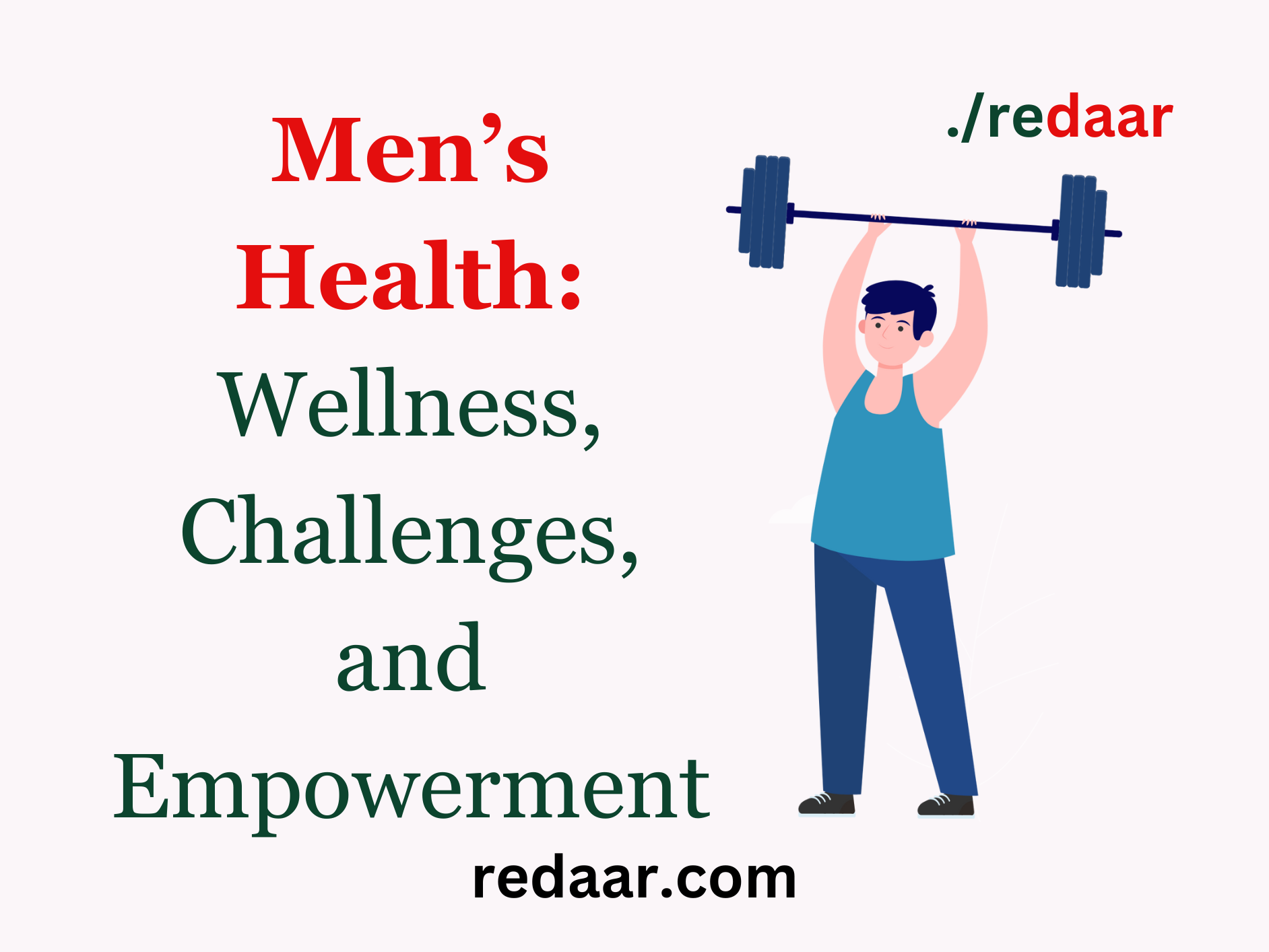Men’s health is a subject in the area of health and well-being that needs careful consideration and purposeful engagement. While talks about health are frequently broad, it is crucial to pay attention to the particular needs, obstacles, and empowerment that men’s health presents.
Men’s health includes a variety of factors that influence both physical and mental well-being and affect a person’s quality of life. We examine critical topics like preventative measures, mental health, inequities, and methods for reaching holistic well-being as we delve into the nuances of men’s health in this article.
Physical Health and Preventative Measures
A fulfilling and successful life begins with maintaining physical health. Men are urged to adopt a preventative strategy for their wellbeing:
Regular Check-ups: For the early identification of potential health risks, yearly health examinations and screenings are crucial. Important areas of concern include prostate health, blood pressure, and cholesterol levels.
Physical Activity: Regular exercise, whether it be aerobic, strength training, or sports, improves overall vitality, muscle strength, and cardiovascular health.
Healthy Diet: A nutritious diet that is balanced and full of fruits, vegetables, whole grains, lean meats, and healthy fats promotes chronic disease prevention and optimal health.
Hydration and Sleep: The importance of staying hydrated and getting enough sleep cannot be overstated while maintaining physical health.
Mental Health and Well-Being
Men’s mental health is a crucial but occasionally overlooked component of total wellness:
Breaking Stereotypes: Men may be discouraged from displaying vulnerability due to societal expectations and conventional gender standards. Open communication about emotions is essential for maintaining mental health.
Stress Management: Men frequently feel pressure to play multiple roles, including protector and provider. It can be helpful to learn stress reduction strategies, such as mindfulness and relaxation exercises.
Seeking Support: When assistance is required, asking for it is a display of strength, not weakness. Seeking assistance is a proactive step toward mental well-being, whether it be through professional counseling or speaking with friends and family.
Disparities and Health Inequities
Men’s health disparities, especially in underserved communities, are not really considered as a big thing however, there are inequities against men, which should be provided with utmost importance:
Access to Healthcare: Disparities in access to quality healthcare can result in delayed diagnoses and inadequate treatment, disproportionately affecting marginalized men. Many backward places do not have adequate facilities. There are measures to look after women’s health even in remote areas, but men are mostly ignored.
Cultural Stigma: Men may be discouraged from seeking medical care due to cultural norms and stigma associated with addressing health issues, which exacerbates inequities. This is especially true when it comes to mental health.
Men’s Mental Health: Because of stigma and societal expectations, men are less likely to seek help for mental health difficulties. Undiagnosed and untreated conditions may result from this. Men who seek help for mental health are looked down on by society, as they believe men should be stronger and shouldn’t have mental health issues.
Empowerment through Awareness and Education
In order to enable men to take control of their health, knowledge, and education must increase:
Health Literacy: Men should have the information necessary to make wise decisions about their health, from comprehending medical terminology to identifying symptoms.
Regular Screenings: Men can be encouraged to prioritize their health by receiving education about the value of routine health screenings and checkups.
Mental Health Advocacy: Men can be empowered through increasing mental health knowledge and de-stigmatizing seeking treatment for mental health issues.
Strategies for Achieving Holistic Wellness
Men must take actionable steps to achieve holistic wellness:
Mind-Body Connection: The mind-body link can be strengthened by engaging in mindfulness, yoga, and meditation, which will improve both your mental and physical health.
Balancing Work and Life: For stress to be reduced and general wellness to be maintained, work and personal life must be balanced.
Community Engagement: Social interaction and the development of close relationships can enhance mental health and offer a network of support.
Regular Exercise: Exercise not only improves physical health but also improves mood and lowers stress.
Nutrition and Hydration: To maintain energy levels and general health, it’s essential to make informed eating decisions and drink plenty of water.
Men’s health is a dynamic and multifaceted issue that merits notice, focus, and active participation. The road to holistic wellness calls for individual commitment and group assistance in areas such as physical and mental health, tackling inequalities, and promoting empowerment via education.
A better, healthier future for men everywhere may be achieved by embracing preventative measures, eliminating the stigma associated with seeking help and fighting for health justice. Men may enjoy life to the fullest by putting their health and well-being first, which will benefit them, their families, and their communities.
Redaar brings to you updated information on health, technology, and finance. Keep checking our blog regularly to stay up to date with the new information on the given niches.

